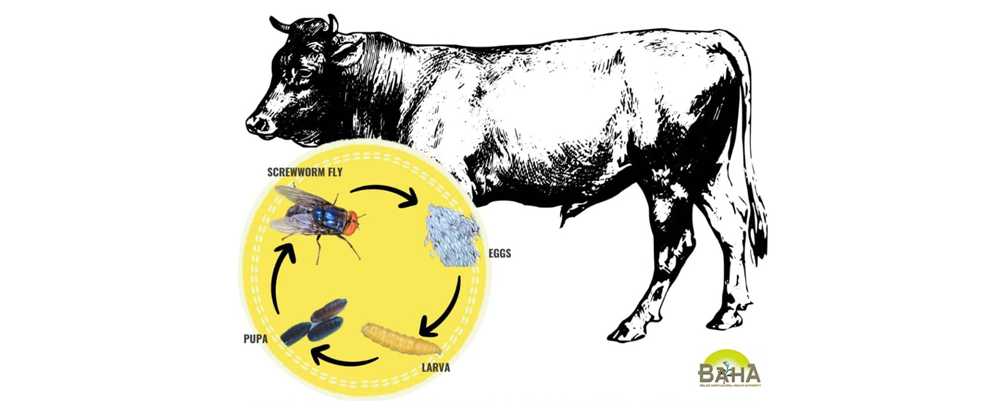by Charles Gladden
BELIZE CITY, Thurs. Oct. 31, 2024
Belize is ramping up its surveillance processes and its efforts to increase public awareness of New World Screwworm (NWS), following reports that Guatemala has recorded its first case of NWS in the country.
The cases were found in Los Amates, Izabal, approximately 44 miles from the Belize-Guatemala border. Amandala has confirmed with Servulo Baeza, CEO in the Ministry of Agriculture, that there is a sole case in that specific area, which was reported on October 28.
“It’s worrisome, because the location of the case is Izabal, and that department borders the Toledo District. We have stepped up our surveillance and public awareness in the Toledo District and have ministry personnel, BAHA (Belize Agricultural Health Authority), and BLPA (Belize Livestock Producers’ Association) on the ground in the Toledo District,” said CEO Baeza.

NWS, also known as Cochliomyia hominivorax, is a parasitic fly whose larvae feed on the living tissue of warm-blooded animals, including humans. This pest can cause severe wounds and, if left untreated, can lead to the death of affected animals.
Previously, NWS has been detected in other countries such as Panama, Costa Rica, and Nicaragua, and its presence could pose a major threat to the livestock in Belize and the rest of Central America. Before the reported case in Guatemala, there were multiple cases in Honduras in the municipality of El Triunfo, Choluteca, where infected cattle and horses that were being moved illegally were detained at a Movement Control Point (MCP).
Baeza told Amandala that NWS would be detrimental to our cattle industry, which is reportedly valued at over $100 million.
“The immediate effect would be to our trade-in livestock,” he said. “It’s very possible that our trading partners could stop the importation of our cattle. The costs to our farmers would go up and the price for our cattle could fall,” Baeza added.
Belize became free from the NWS in 1992 and has maintained this status since then; however, with the rising cases in Central America, Belize is monitoring the situation carefully. BAHA calls on persons who suspect larval infestations in animals to report to BAHA’s Animal Health Department offices at 302-1388 in Orange Walk, and 824-4872 in Central Farm.

